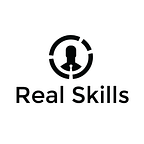How to Succeed in Case Competitions — A Real Skills Perspective
Case competitions are designed to challenge your problem solving skills, therefore following a set guideline can help you get closer to a podium finish.
By Truc Luong
Case competitions provide students the opportunity to utilise the technical knowledge learnt in the classroom to solve real world challenges. At the same time, they allow students to develop soft skills like teamwork, presentation and time management, as well as relevant project based experience which can be showcased during the job application process. On average, 91% of employers prefer candidates to have work experience, and 65% of them prefer candidates to have relevant work experience. However, entering the first case competition with no experience can be daunting. A member of the Real Skills team has shared their tips on how to successfully tackle case competitions.
Self-introduction
“My name is Jocelyn Liang, and I’m currently a first year Mechatronic Engineering and Computer Science student. With this degree, I hope to pursue a career in technology innovation. In my spare time, I enjoy dancing, going longboarding, and on top of this, I’m also trying to learn a bit of Chinese!”
The Appeal of Case Competitions
“When I heard about UNSW BSOC x Google’s Case Competition in Term 1, I thought it would be an interesting experience since I’ve never participated in one before. I signed up as an individual and was placed in a team with other first year students. Long story short, our team was so confused and overwhelmed by the brief that we didn’t even submit a slide deck!”
“When BSOC x WPP’s Case Competition opened in Term 2, I was determined to try again with a team that wasn’t placed together by the organisers, and hopefully my teammates would be more accountable. In fact, I was so carried away with exploring case competitions that I ended up doing three case competitions at the same time — BSOC x WPP, WIESoc x Aurecon and EngSoc’s Applied Consulting for Engineers program! This was the most stress I’ve ever experienced, however, it enabled me to learn that I have a tendency to overestimate my time. Luckily, I was able to win both the BSOC x WPP case competition and WIESoc x Aurecon Design Challenge.”
“Participating in case competitions helped me realise that I should think simply. Don’t overcomplicate things and get overwhelmed! At the end of the day, you want to stand out from other competitors and showcase a good product. Other details follow easily after you apply this basic principle to everything that you do. For example, the broader question “How do I make a good presentation?”, can be answered by following this principle and looking into finer details like using storytelling to deliver your pitch or elevating your slides to aesthetically stand out from the rest.”
How to Tackle Case Competitions
- Take care of yourself and manage your time wisely.
“We can break down the case competition into three aspects — yourself, your team, and the case itself. The first aspect is all about managing your time. As a university student, you’re already juggling academics, socials, part-time jobs or internships, as well as any societies you may be involved with. Participating in case competitions will make your to-do list much longer, so manage your time wisely! There may be room for a party or two, however, remember that the competition is only a one or two-week project sprint. You can enjoy the nightlife with your friends another time, but you won’t get a second chance to submit your solution.”
2. Take care of your teammates as teamwork makes the dream work!
“Case competitions are all about teamwork! Call everyday to keep accountability and morale high. Check up on each other (how your teammates are feeling, any worries that they have, how available they are the next day, etc) and discuss every single detail. Ensure that each task is set as specific as possible in the prior meeting. Most case competition entries die out because people lose motivation half way and team mates start feeling less accountable, which leads to missing a day or two of work, but every bit you do during the one or two-week sprint counts! Regular check-ups also help you and your teammates to more openly communicate with each other — having meetings and working on allocated tasks will feel less like a chore.”
3. Always have direction while working on your project!
“Don’t feel afraid to seek further clarifications in regards to the brief from other participating teams and people running the competition. This will help guide your project in the right direction. If you’re feeling lost, start with the classic skeleton for each slide of your presentation, for example: Issue → Strategy → Impact →Financials → Risk & Mitigation. You can then research and brainstorm to pitch your idea as something that’s feasible, innovative and something that you’re passionate about. Ensure to paint a clear picture of the problem you’re trying to solve with statistics from well-accredited sources. On top of conducting research into your potential solution, read into company values. Judges of case competitions are usually company executives. It’s impressive when you demonstrate knowledge of their vision, and if you pitch an idea which they can actually visualise being executed, that can push your pitch one step ahead of two equally good pitches.”
What can you take away from Jocelyn’s experience?
Instead of feeling taken back by the uncertainties of case competitions, Jocelyn chose to give it her all despite her lack of experience. Participating in case competitions enabled Jocelyn to develop soft skills like teamwork and public speaking, which will undoubtedly ease her transition from university classrooms to professional work environments. Furthermore, Jocelyn’s top placement in these case competitions will serve as the evidence of her talent in future internship and graduate job applications.
If you’d like to contact us or learn more, check out our socials!
